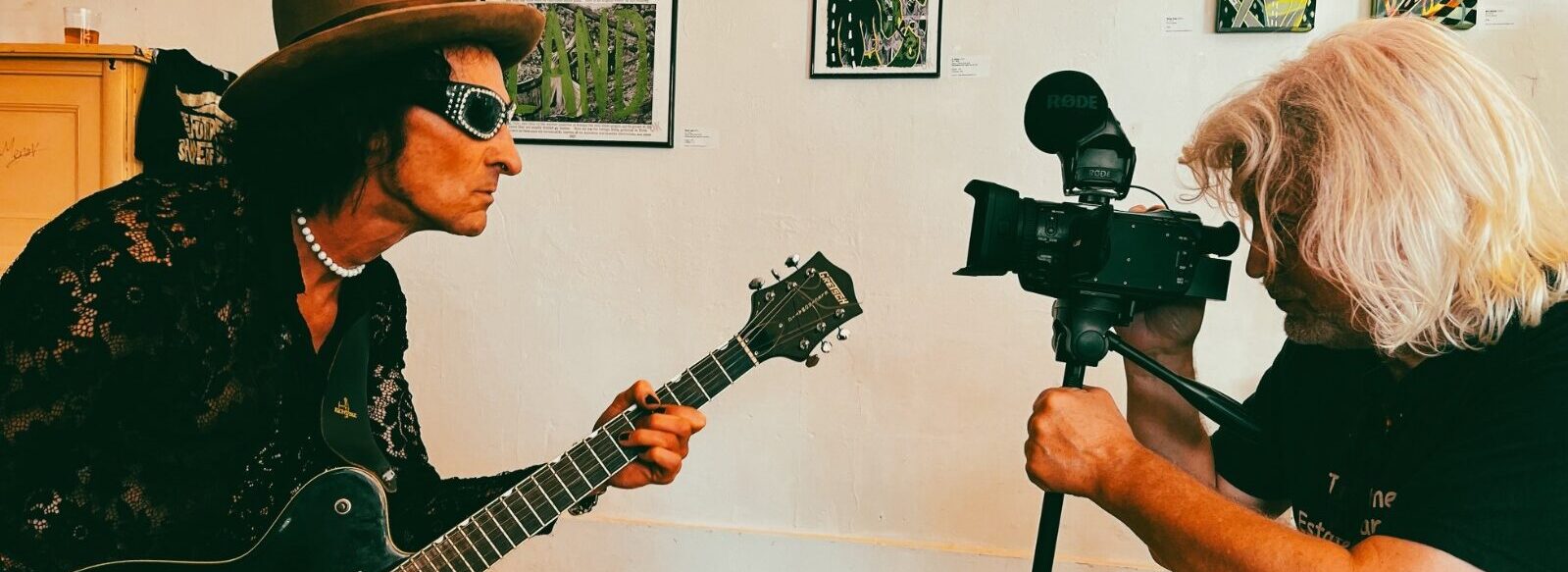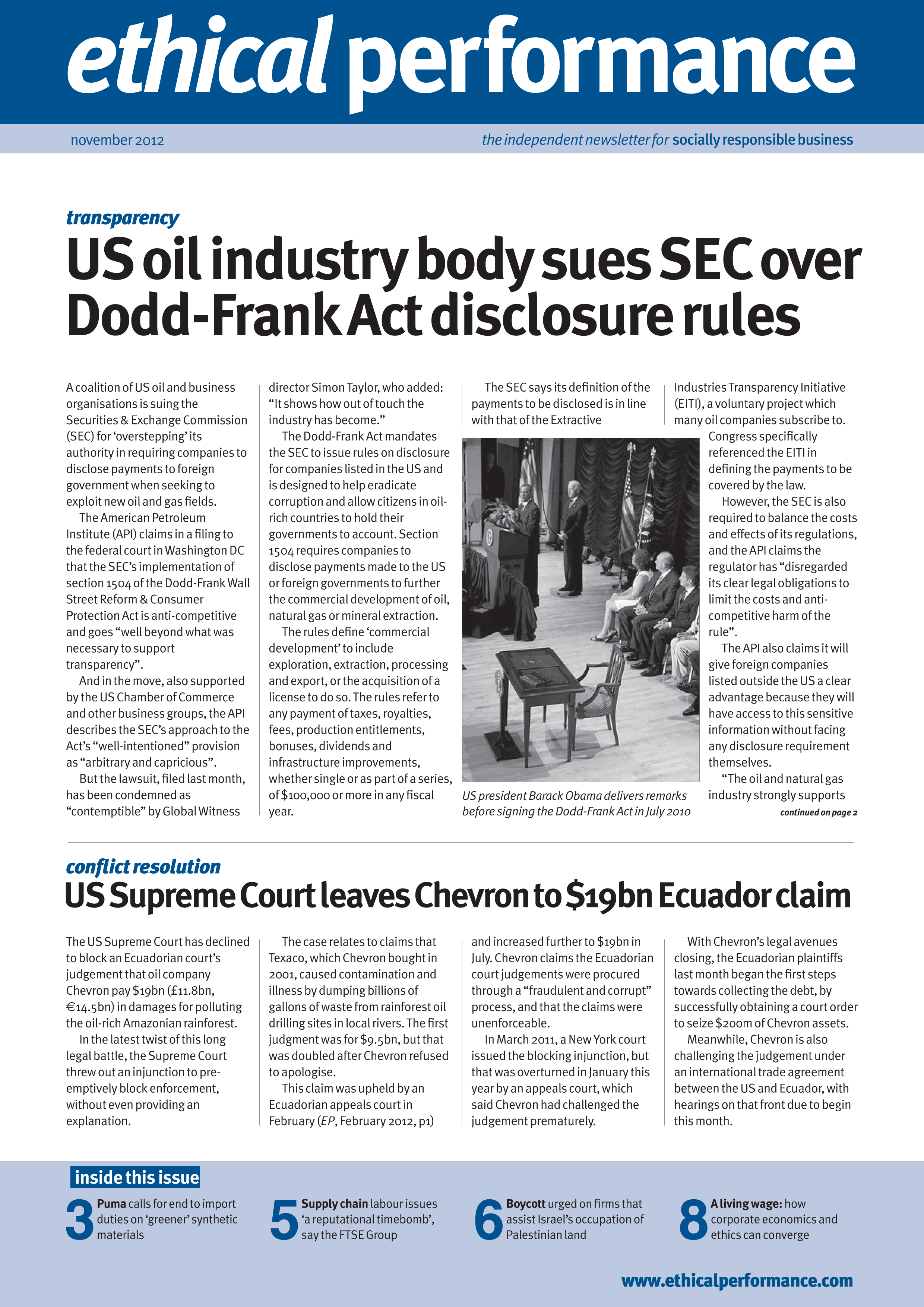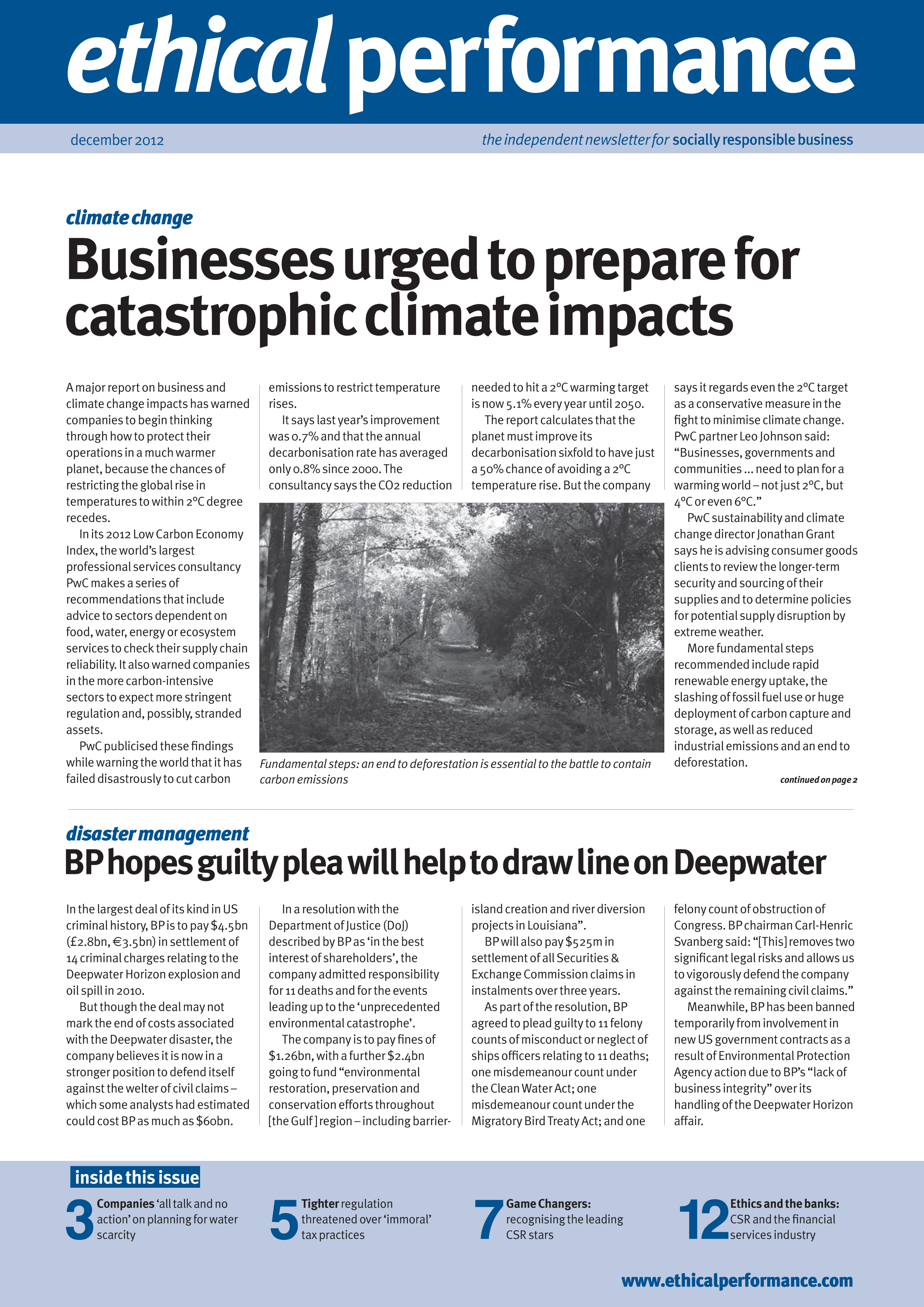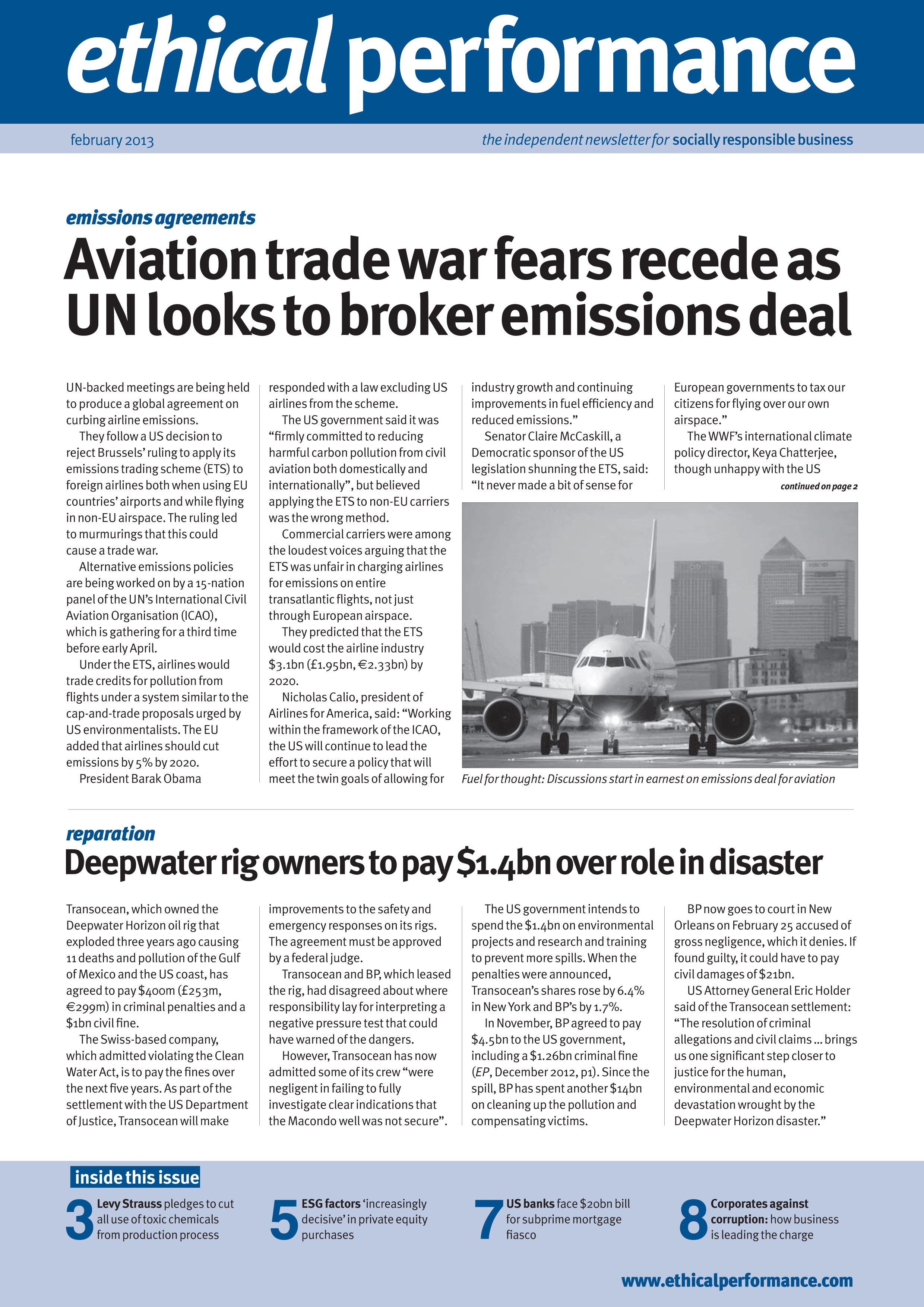After a year and a half as managing editor of Ethical Performance, I’ve decided to go back to working as a freelance journalist. A brave decision, perhaps, with the economic outlook as it is, but some things just need to be done and I feel good about having my creative freedom back.
It was an interesting job at EP, which was spent covering the corporate social responsibility (CSR) world. Though this is a very dynamic business sector, one of my contacts in that field recently summed up a sense I had had a while ago: that the discourse around CSR has stopped exploring much that is new and has, instead, become focused on implementing currently-accepted best practice than advancing the concept and its purpose.
This is not necessarily a bad thing. Implementation is a major issue that will entertain the minds of business owners for years to come – and, increasingly, in the SME sector. For larger companies, the supply chain is a growing front in the battle over brand value and reputation, as evidenced by the horsemeat scandal.
Failure to keep on top of complex supply chains has led to customers unknowingly buying processed beef products diluted with cheaper additions. Neither the major brands which bought into this murky world nor their customers were aware of the truth behind the labelling. And when the issue was uncovered, which it was always going to be, sections of the industry were completely unprepared for the loss of trust and business, the increased costs of quality assurance and the very real threat of greater regulation.
The supply chain is a recurring story in which only the names and the places change. And the combination of increasing public awareness and concern about the issues on the one hand, and more co-ordinated and highly-motivated groups ready to agitate on the other, means supply chain issues could occupy CSR practitioners’ minds for some time. Just look at the recent successes that campaign groups such as Greenpeace have had in ‘persuading’ big brands to remove toxic chemicals from their manufacturing processes, to be more humane to their staff and the communities where they are based, and to avoid over-exploiting scarce natural resources and damaging the environment where production takes place. In short, look how businesses are increasingly looking to be more sustainable.
To my mind, once the inter-connectedness of production and the interdependence of businesses on peoples and materials commands such attention, then it is only a matter of time before serious questions about business purpose and wider social questions of opportunity and happiness will also become prominent. Market research already suggests that consumer awareness of these issues is on the rise, and that they would be prepared to vote with their wallets. And these questions are even trickier to answer the mere questions of provenance and management, particularly in an unequal, resource-contrained, environmentally-unstable world of haves and have-nots. I might be wrong, but for all its strengths and achievements, these are not questions that CSR practitioners are necessarily well placed to tackle at the moment. Most have enough on their plate dealing with the here and now.
For me, there are crucial issues which are simply not being assessed. How far, for instance, can we rely on economic growth to lift us out of the doldrums? Should we rely on growth at all, given that it will surely only lead to us exploiting already scarce resources while increasing carbon emissions? What does a post-growth company look like? Would we be any happier even if, by some miracle, growth lifted the economic gloom and kept emissions sustainable? To what extent can companies constantly look to create and exploit new markets to sell us things we didn’t previously know we wanted?
Harsh realities must surely change the way we do business, but in terms of awareness, I don’t think we’re very far down that particular road. Some business leaders are very switched onto this agenda, but they don’t represent the mainstream. There are interesting times ahead and I, for one, am excited by this brave new world.



